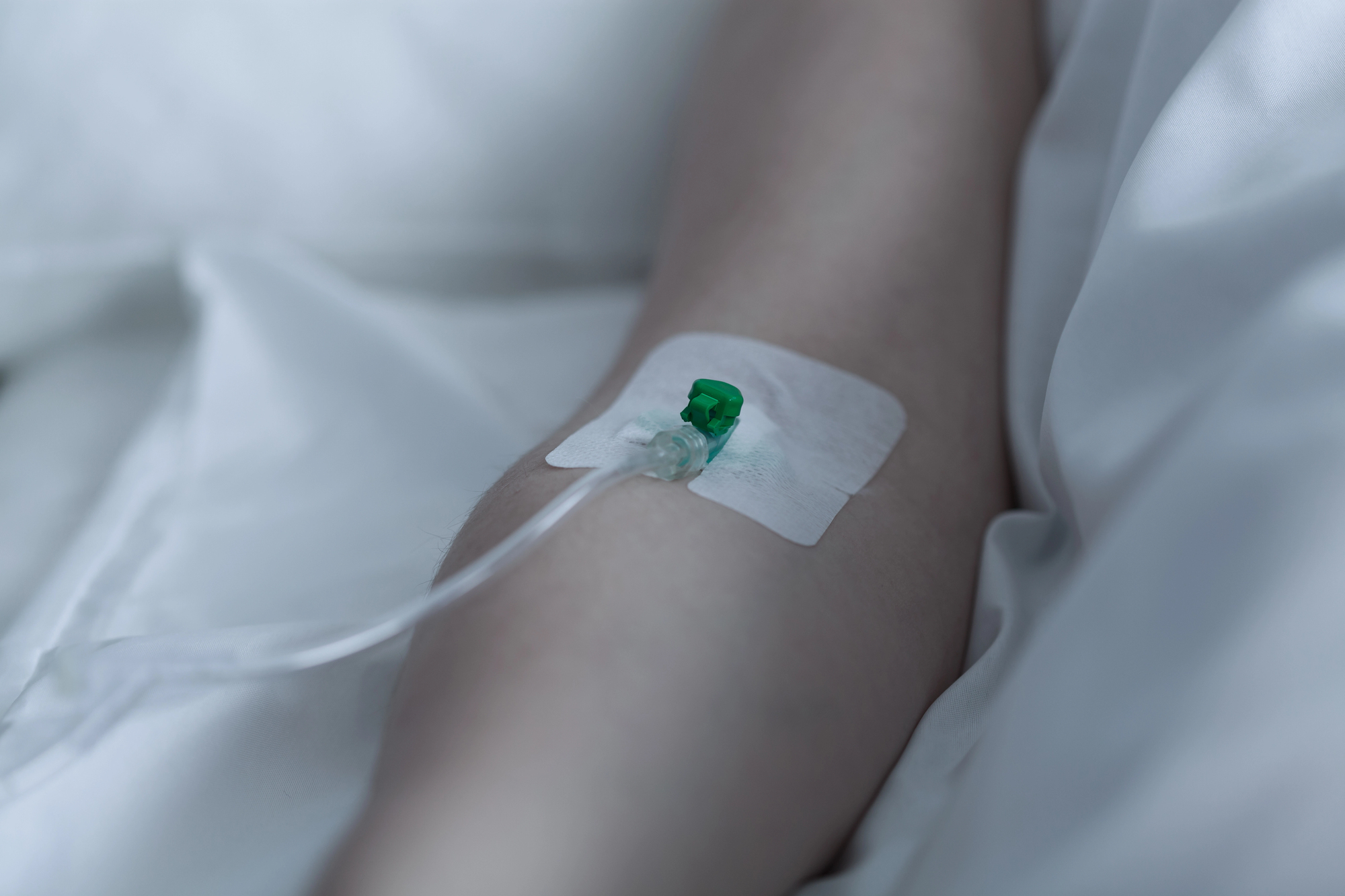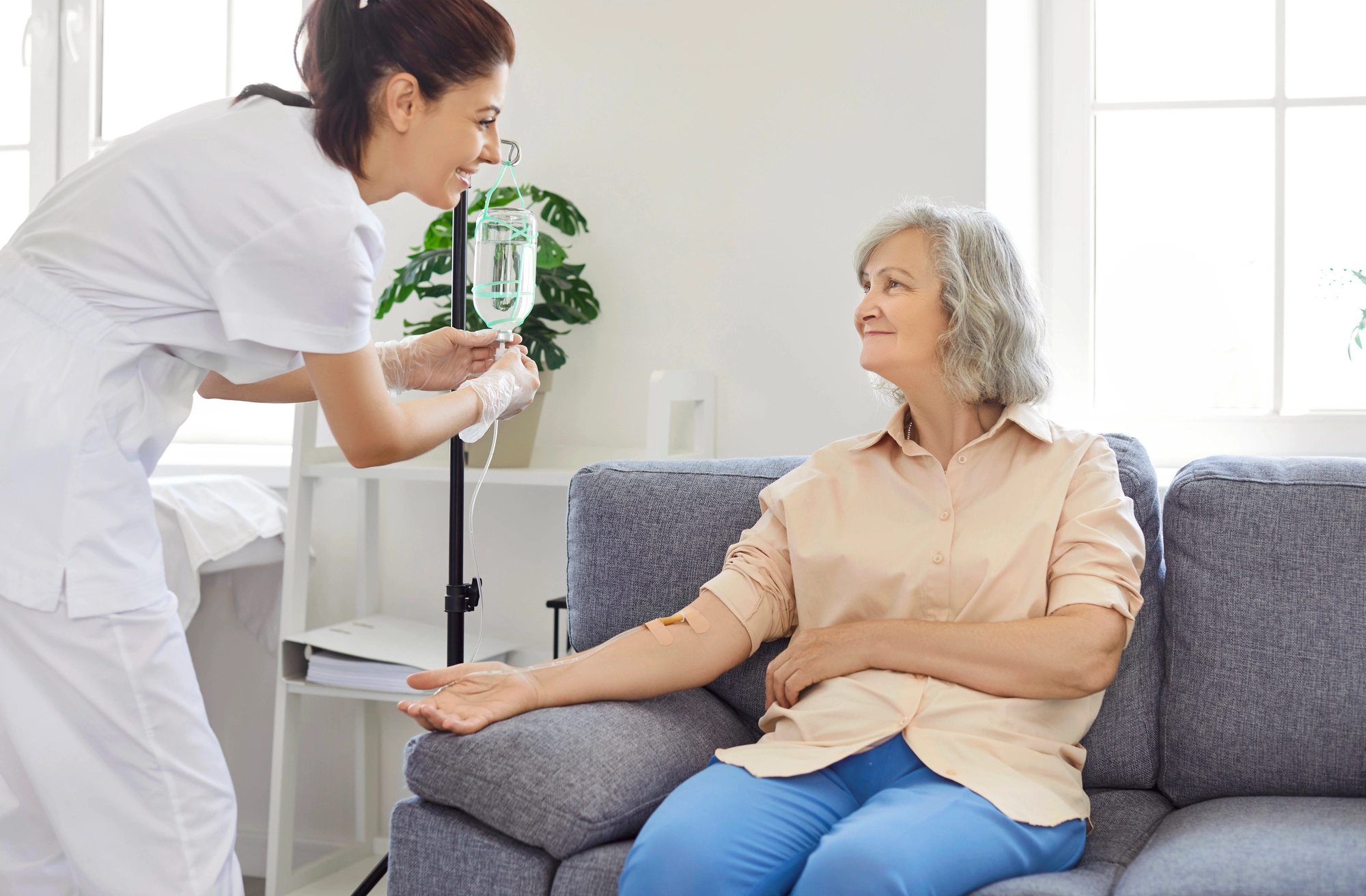Common dehydration symptoms, 101 on IV Therapy solutions, and when it is beneficial to receive IV fluids are some of the main topics of this article.
In the beautiful, sunny climate of Puerto Rico, staying hydrated is crucial for your health and well-being. The warm weather and active lifestyle often lead to increased fluid loss, making it essential to be mindful of your hydration levels. Dehydration can creep up on you, especially when you're enjoying outdoor activities, exploring the island's wonders, or simply going about your daily life. Recognizing the early signs of dehydration is key to preventing more serious health issues and ensuring you feel your best. While drinking water is always a good practice, sometimes it alone isn't enough to quickly replenish lost fluids and electrolytes. In these situations, IV therapy can provide a fast and effective solution.
Let's explore the top signs that you might be dehydrated and how IV therapy from Mobile IV Puerto Rico can help you feel revitalized and ready to enjoy life to the fullest.
Why is Hydration So Important? The Foundation of Health
Before we dive into the signs of dehydration, let's quickly recap why staying hydrated is so vital for your body's overall health and well-being. Water makes up a significant portion of your body weight, typically around 50-70%, and it plays a crucial role in numerous bodily functions. From regulating your body temperature to transporting essential nutrients to your cells, water is involved in nearly every process that keeps you alive and functioning optimally.
- Regulating body temperature: Water helps to dissipate heat through sweat, preventing overheating.
- Transporting nutrients to cells: Water acts as a solvent, carrying nutrients and oxygen to your cells.
- Lubricating joints: Water cushions and lubricates your joints, reducing friction and preventing pain.
- Aiding digestion: Water helps to break down food and move it through your digestive system.
- Flushing out waste products: Water helps your kidneys filter waste products from your blood and eliminate them through urine.
When you're dehydrated, these essential processes can become impaired, leading to a variety of symptoms and potential health problems. Understanding the importance of hydration will help you appreciate the significance of recognizing the signs of dehydration and taking prompt action to replenish your fluids.
Top 10 Signs You Might Be Dehydrated: Listening to Your Body's Signals
Dehydration can manifest in various ways, and the symptoms can range from mild to severe, depending on the extent of fluid loss. It's crucial to pay attention to your body's signals and recognize the early signs of dehydration before they escalate into more serious problems.
Here are some of the most common signs that you might be dehydrated:
- Thirst: This is the most obvious and often the earliest sign of dehydration. If you're feeling thirsty, your body is already signaling that it needs more fluids. Don't ignore this signal – reach for a glass of water or a hydrating beverage right away.
- Dark Urine: The color of your urine can be a good indicator of your hydration status. Pale yellow or clear urine typically indicates good hydration, while dark yellow or amber urine suggests that you may be dehydrated.
- Infrequent Urination: If you're not urinating as frequently as usual, it could be a sign that your body is conserving fluids due to dehydration. A healthy individual typically urinates several times throughout the day.
- Dry Mouth and Throat: Dehydration can lead to a lack of saliva production, resulting in a dry mouth and throat. You may also experience a feeling of stickiness in your mouth.
- Headache: Dehydration can cause blood vessels in the brain to constrict, leading to headaches. These headaches may range from mild to severe and can be accompanied by other symptoms like dizziness.
- Dizziness or Lightheadedness: Dehydration can lower blood pressure, causing dizziness or lightheadedness, especially when standing up quickly. This is because your body doesn't have enough fluid volume to maintain adequate blood flow to your brain.
- Fatigue: Dehydration can impair energy production, leading to feelings of fatigue and weakness. You may feel sluggish, tired, and unable to concentrate.
- Muscle Cramps: Dehydration can disrupt electrolyte balance, causing muscle cramps, particularly during exercise. Electrolytes like sodium, potassium, and magnesium are essential for proper muscle function.
- Dry Skin: Dehydration can reduce skin elasticity, making it feel dry and less supple. You can test your skin elasticity by gently pinching the skin on the back of your hand. If it doesn't snap back quickly, you may be dehydrated.
- Concentration Problems: Dehydration can impair cognitive function, leading to difficulty concentrating and focusing. You may find it hard to remember things or pay attention to tasks.
When is IV Therapy Necessary for Dehydration? A More Effective Solution
While mild dehydration can often be resolved by drinking water or electrolyte-rich beverages like sports drinks, there are situations where IV therapy is a more appropriate and effective solution for rapid rehydration. Consider IV therapy if you're experiencing:
Severe Dehydration: If you're experiencing severe symptoms such as extreme thirst, very dark urine, infrequent urination, confusion, or rapid heartbeat, you may need IV therapy to quickly replenish fluids and restore your body's balance. These symptoms indicate a significant fluid deficit that requires immediate medical attention.
Inability to Drink Fluids: If you're unable to drink fluids due to nausea, vomiting, or difficulty swallowing, IV therapy can provide a much-needed source of hydration, bypassing the digestive system altogether. This is particularly helpful for individuals who are ill or recovering from surgery.
Exhaustion from Heat: Spending time in the Puerto Rican sun can lead to significant fluid loss through sweat. IV therapy can help you rehydrate quickly and recover from heat exhaustion, preventing more serious heat-related illnesses.
Intense Physical Activity: Athletes or individuals engaging in strenuous physical activity may benefit from IV therapy to replace fluids and electrolytes lost through sweat. This can help improve performance, reduce muscle cramps, and speed up recovery.
Furthermore, individuals with chronic conditions or those recovering from a hangover may also find IV therapy beneficial for managing dehydration symptoms.
How Does IV Therapy Help with Dehydration? Rapid Rehydration and Replenishment
IV therapy offers a powerful and efficient solution for combating dehydration by delivering fluids and electrolytes directly into your bloodstream through a small IV line. This method bypasses the digestive system, ensuring rapid and complete absorption of the administered fluids and nutrients.
Unlike drinking water or consuming oral electrolyte solutions, which must first be processed by the digestive tract, IV therapy provides immediate hydration and replenishment, making it an ideal choice for individuals experiencing moderate to severe dehydration. The direct delivery of fluids helps to quickly restore blood volume, improve circulation, and alleviate symptoms such as headaches, dizziness, and fatigue.
IV solutions can be carefully customized to include a balanced blend of electrolytes, such as sodium, potassium, and magnesium, which are crucial for maintaining fluid balance, supporting nerve and muscle function, and promoting overall well-being. This targeted approach allows for a more precise and effective correction of electrolyte imbalances, leading to faster recovery and improved outcomes compared to oral rehydration methods. By rapidly rehydrating your body, IV therapy can help you restore your energy and vitality.
What to Expect During a Mobile IV Therapy Session
Treatments like ours at Mobile IV Puerto Rico bring the convenience of IV therapy directly to your doorstep, whether you're at home, in a hotel, or at the office. Here's what you can expect during a typical session:
- Consultation: A registered nurse will begin by assessing your symptoms, reviewing your medical history, and discussing your individual needs to determine the most appropriate IV solution for you.
- Preparation: The nurse will carefully clean the injection site, typically on your arm, and insert a small, sterile IV line into your vein.
- IV Administration: The IV fluids and electrolytes will be administered over a period of about 30-45 minutes, during which you can relax, read a book, watch TV, or simply close your eyes and unwind.
- Monitoring: The nurse will closely monitor your vital signs and ensure that you're comfortable and experiencing no adverse reactions throughout the session.
Who Can Benefit from IV Therapy for Dehydration?
IV therapy for dehydration can benefit a wide range of individuals, including athletes, outdoor enthusiasts, people with chronic illnesses, individuals recovering from illness, travelers, and anyone experiencing dehydration symptoms. Whether you're looking to boost your performance, recover from a strenuous activity, or simply rehydrate after a day in the sun, IV therapy can help you feel your best.
Ready to Experience the Benefits of IV Therapy for Dehydration?
Visit www.mobileivpuertorico.com today to learn more about our IV therapy services, explore our range of customized IV solutions, and schedule your personalized appointment. Stay hydrated, feel your best, and live life to the fullest in beautiful Puerto Rico!





